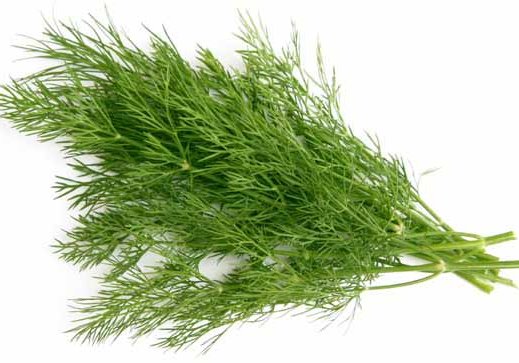Too much sugar – the effects of eating too much sugar.
Sugar is a popular name of saccharose. We perceive cane and beet sugar (sugar sand, lump sugar) as a food product of primary necessity. Usual sugar, called saccharose, refers to carbohydrates, that are considered to be valuable nutrients, supplying the organism with necessary energy.
 Sugar is a highly refined digestible carbohydrate, especially lump sugar. It represents no biological value, except calories. Each 100 g of sugar contain 409.2 kkal.
Sugar is a highly refined digestible carbohydrate, especially lump sugar. It represents no biological value, except calories. Each 100 g of sugar contain 409.2 kkal.
Starch refers to carbohydrates too, but it is slowly digested by the organism. But saccharose quickly breaks up in the digestive tract in glucose and fructose, then they get in the blood flow.
Glucose insures more than half of metabolic cost of the organism. Normal blood glucose concentration is maintained on the level 80 – 120 milligrams of sugar in 100 millilitres. Glucose has the property to maintain the barrier function of the liver against toxic substances due to the assistance in the formation in the liver the so-called paired sulphuric and glucuronic acids. That is why taking sugar by mouth or glucose injection into a vein is recommended in some liver diseases and poisonings.
For a long time, taking sugar and intravenous injection of glucose concentrated solutions have been considered an effective remedy in various diseases of the cardiovascular system, the nervous and the digestive systems.
In the recent years scientists are inclined to the necessity to restrict the use of this product. It is found that for elderly people eating too much of sugar contributes to impaired fat metabolism, leads to the increase in cholesterol concentration and sugar in blood, and disorganizes cell functions.
The character of micro-carbons, getting with food into the organism, influences the increase the cholesterol level in blood. In this respect, lactose is more active in comparison with saccharose, which in its turn promotes hypercholesterolemia more than glucose. Densification of sugar in blood changes permeability of arteries walls and creates favourable conditions for accretion of lipids and increases platelet agglutination.
It is no mere chance that dietarians insist on the quantity of sugar not exceeding 15% of general daily quantity of carbohydrates in the food ration of elderly people, especially those who are inclined to obesity.
Cardiologists state that as a result of increase in caloric value of food on account of sugar, favourable conditions are created in which people who don’t perform manual labour suffer from overweight and quick development of atherosclerosis. Therefore, eating too much sugar is bad for your heart.
The case is that digestible carbohydrates when they are excessively consumed, get from the intestinal tract into blood flow and stimulate (and if it is repeated quite frequently, they can disable) the insular apparatus of the pancreas.
In normal conditions the hormone of the pancreas – insulin performs in the organism the function of a regulator of carbohydrate metabolism. Due to insulin, sugar is distributed in the liver and muscles in the form of glycogen, and a part of sugar turns into fat. The need of the organism for carbohydrates in middle age is 400 – 500g, and in elderly age is 100g less.
Sugar in the middle ages was available only for rich layers of population as it was very expensive and was sold at chemist’s shops by grams. At first sugar was extracted from sugar cane, which has a hollow stem, containing sweet juice suitable for sugar production.
Much later they started to use sugar beet for sugar production. Nowadays 60% of sugar in the world is made of sugar cane and 40% – of sugar beet. Sugar represents practically pure saccharose that is quickly breaks up in the organism in glucose and fructose. It is digested simply in a few minutes and turns into the source of energy.
There are both pluses and minuses in sugar.
Why is sugar bad for you
Sugar doesn’t represent any nutritional value, apart from energetic one.
Sugar has high energetic value, it provides a lot of calories which should be got from other products which besides calories would give vitamins, mineral substances, etc.
Sugar is harmful for teeth as bacteria in the mouth of man transform it in acids which destroy tooth enamel and promote caries.
Excessive use of sugar contributes to the appearance of fat depot, so sugar in large quantities is harmful to the figure and health.
Sugar has a high glycemic index. You have only eaten a piece of cake, and the sugar it contains immediately gets in blood. Sugar level in blood increases: the pancreas reacts immediately, working out insulin, insulin sharply reduces sugar concentration in blood, and the signal comes to the brain that it would be a good thing to eat something delicious. An so endlessly. As the result you get a constantly high level of insulin in blood and a high degree of probability to acquire diabetes as a chronic illness or to get infarct.
The excess of saccharose in food ration is a strong reason for the appearance of atherosclerosis, hypertensive disease, ischemic heart disease.
It is proved that there exists a direct connection between the appearance of allergy of children and grown-ups and the excessive consumption of sugar.
Sugar causes disturbances in the work of the immune system.
Sugar fans need more vitamin B1. Vitamin B1 is necessary for sugar digestion. Fruit, potato and other natural “providers” of carbohydrates contain this vitamin in the quantity which is sufficient to digest their own sugars.
Why is sugar good for you
Sugar makes us happy. In passions of grief we eat something sweet, then the pancreas works out insulin which in its turn leads to secretion of serotonin – the hormone of happiness.
Sugar gives energy. Having got into the organism, sugar is transformed in glucose, supplying us with energy.
One should take into account that carbohydrates are not only sugar but honey, fruit, ground corn products, cereals. The so-called simple sugars (cane, beet, grape) are freely soluble in water and easily absorbed into blood. To slow down the transition of sugar from blood to tissues, it is recommended to replace refined carbohydrates (sweets, confectionery products and others) by starch.

